Volume 6, 15: A Snowy Night Aboard A Tower Ship
Volume 6, Chapter 15: A Snowy Night Aboard a Tower Ship
1
Lu Can had trained elite cavalry in Sichuan, a secret unknown to all. When the Yong forces commanded by Generals Cui and Dong launched a joint attack on Shouchun, Shi Guan held out in the city and did not retreat. Lu Can secretly ordered the elite cavalry to sneak into Huaixi. On the twenty-first, the Yong army’s fierce assault had stalled, and when noon arrived, the elite Southern Chu cavalry charged. They devastated the Yong army outside the walls. Dong Shan’s force covered the treat of the rest of the Yong army, while Cui Jue’s force broke out of the encirclement. After the rout, every four or five out of ten Yong soldiers were casualties.
Dong Shan, a native of Tianshui, Longxi Commandery,
2
had lost his parents at a young age. He became a warrior fond of bravery and aggression to disgust his clan. When he first joined the army, he became a subordinate of the Prince of Qi. In the fifth year of Longsheng, he was transferred to Xuzhou and became the subordinate of Pei Yun, Military Commissioner of Huainan. In the seventh year of Longsheng, he obeyed orders to invade Huaixi and captured Zhongli. He attacked Shouchun but suffered a crushing defeat. Dong Shan requested that he personally cover the retreat to make things difficult for the Southern Chu army. After some time, the Chu army called for his surrender. Because of these words, he issued a challenge, picking Lu Yun and Shi Yujin as his opponents in this duel. Lu and Shi cut down Dong Shan, and the Yong army surrendered.
—
Zizhi Tongjian
,
Yong Records Volume Three
On the night of the twenty-first day of the eleventh month, a heavy fog settled on the river in Guazhou, Jingkou. Lu Can was standing on the deck of the tower ship, gazing at the surging river water. Behind him, the Jiujiang Barracks’ navy had finished their preparations. They would take advantage of this opportunity to cross the river and make a surprise attack. They had been at a stalemate with the Yong army for over twenty days. Lu Can may have looked calm on the surface, but he was apprehensive at heart.
He wasn’t worried about the opposite shore’s Pei Yun, even though the Yong army on the opposite shore numbered nearly a hundred thousand men, while he only had over twenty thousand men in the navy with less than a thousand ships. It would be impossible to cross the river and capture Jingkou with this strength. Even if he intended to recapture Yangzhou, it would still be difficult if he had fifty thousand marines.
At Guazhou Ferry, neither army needed to be sure of success, because neither army had initiated battle for the past several days. However, this allowed Pei Yun peace of mind, while Lu Can had to worry about the outcomes of numerous battles. Could Huaixi follow his plans and achieve victory, could Xiangyang be as steady as Mount Tai, could Jiameng Pass come out unscathed? The most important among these was the battle in Huaixi. If Huaixi were lost, Huainan would never again belong to Southern Chu. The Yong armies could then cut off the connections between Xiangyang and Jiangling without any hurry. If this happened, Jingxiang would be isolated. And the Yong army could bring their troops to the lower reaches of the Yangtze River. Southern Chu didn’t have any buffers outside of the Yangtze River. Even if Sun Tzu were reborn, the situation would be too far gone to save by that point.
After Lu Can received intelligence on the Yong movements and the strength and position of each column of the army, he realized the Yong military also knew the importance of Huaixi. Sichuan and Xiangyang were the main targets against the Grand General to tie these two regions up so he couldn’t order them to help out, otherwise the two regions would be tough nuts to crack. Moreover, the Southern Chu garrison generals weren’t ordinary characters either. If the Yong army truly wished to capture either region, they would need to double their own strength at the least.
The situation in Huaidong had eroded as Pei Yun got straight to the point. The Yong army could have used the region as a breach point, but the Yong emperor had presumably also seen that the entire breadth of Huaidong was a network of rivers. In addition to the advantage the Southern Chu army had in attacking and defending, Pei Yun didn’t advance recklessly even though he had easily captured Huaidong. He even deliberately tempted Lu Can to fall into the quagmire of the scrabble in Huaidong. As a result, the Yong army’s real target was Huaixi. Even though the Yong army marched with great fanfare and used the three columns of the army to cover up the real target of the Yong offensive, the vanguard knew it could only be Shouchun.
Lu Can may have figured this out, but he couldn’t do anything about it. If Yu Mian and Rong Yuan let up a little, the Yong army could very likely take advantage of it and execute an offensive. And if Jingkou wasn’t on guard, Pei Yun could cross the river and capture Jianye. Once the hundred thousand infantry and cavalry of the Yong army crossed the river, Lu Can was afraid history would repeat itself, due to the strength of the Jianye Royal Guard. As a result, he could only watch as the Yong army captured Huaixi even though he had skill. If the Yong army detached a huge force and a commander to seize Huaixi, then Lu Can would be powerless. However, an underestimation of their enemy pervaded the Yong court and country, so Li Zhi did not dispatch a military governor general to Huaixi. He simply had Zhangsun Ji and Pei Yun send their respective armies out to link up to attack Shouchun together. In this way, Lu Can had the opportunity to turn the tide.
To achieve victory in Huaixi, Lu Can had strained all his mental faculties. Although the commander in Huaixi, Shi Guan, wasn’t an extraordinary talent, he was tenacious and calm. Lu Can had plenty of confidence in him. To confuse the Yong army, and not let Yong send out any generals who could take charge of attacking Huaixi, Lu Can had deliberately “neglected” the situation in Shouchun. He didn’t send a relief force to save Huaixi. Afterwards, he did not spare his beloved son’s life and had Lu Yun go to Shouchun to assist Shi Guan. This was extremely dangerous to do. If anything went wrong, Lu Yun would perish in Shouchun even if Southern Chu triumphed in Huaixi. However, if Lu Can did not do this, he could not calm the hearts and minds of the civilians and soldiers in Shouchun. That would mean the Yong army would not exhaust itself. Then it would be even more unlikely for nine thousand elite cavalry to shatter the Yong army. Eventually, Lu Can settled on activating the Flying Cavalry that had been hidden.
Southern Chu didn’t place much importance on cavalry because the terrain restricted them and because Southern Chu lacked the northerners’ confidence ever since the founding of the kingdom. As a result, in the wars against Great Yong, Southern Chu had always been weak in this aspect.Thê sourc𝗲 of this content n/o/v/(𝒆l)bi((n))
Southern Chu became a reluctant vassal when Zhao Jue, the Prince of De, was in charge of the military. Zhao Jue lamented the unfavorable circumstances of the Southern Chu military, and under his persistence, Southern Chu finally obtained their own cavalry. Relying on nearly twenty thousand cavalry troops, Zhao Jue blocked Great Yong’s southbound heavy cavalry and broke into Sichuan. The Prince of Qi, Li Xian, assaulted Xiangyang twice, and both times this division of cavalry coordinated with the city defenders when they sallied out, allowing them to gain victory in the end. However, after the death of the Prince of De, the monarch and subjects of Southern Chu suffered heavy blows and dishonor and humiliation. Not only did they refuse to bide their time for revenge or to seek reprisals, they instead appeased their overlord with their heads held high. When Lu Xin, the Duke Who Suppresses Distant Lands, succeeded the Prince of De as the manager of military affairs, his background was in the navy so he didn’t place much importance on cavalry. As a result, this division of cavalry not only couldn’t increase their ranks, but they gradually weakened. If not for the hard work of the Prince of De’s former subordinates, it would have been difficult to maintain the organizational strength of Xiangyang’s cavalry.
After Lu Can inherited the position of grand general, he decided to rebuild the cavalry. But against Shang Weijun and company’s obstructions, the Jiangxia cavalry reached exactly three thousand men before he stopped receiving the support of the court. Some courtiers even dug up his past to attack his character, criticizing Lu Can for wasting the pay and provisions of the troops and raising money for useless and extravagant cavalry. Some people even accused Lu Can of training recruits as a pretense for raising his descendants. Naturally, Lu Can still could not antagonize Shang Weijun, so had no choice but to abandon preparations for a cavalry stables. However, Lu Can did not give up. After his triumph at Jiameng Pass, he secretly trained cavalry in Sichuan.
Yu Mian was very respectful toward Lu Can and always did as he was told. Lu Can could hide the truth of the strength of the Southern Chu military. Sichuan also contained many cavalry stables, so not only did Great Yong agents not know of his stables’ existence, but the Southern Chu court didn’t know either.
The warhorses came from three major sources: After the cavalry divisions established by the Prince of De were dissolved, Lu Can secretly sent the steeds to Sichuan and constructed a stables; Northern Han’s warhorses were smuggled on the sea—and while this route was not ideal as Great Yong’s influence in the Eastern Sea was very widespread, shipping was extremely difficult, the warhorses found it very difficult to sustain themselves, and they had to be transported a thousand
li
3
to Sichuan—many of the excellent horses in Sichuan’s stables came in from this route, but after Northern Han was destroyed, this route became mostly unusable; besides these sources, Lu Can even dispatched a trusted aide to Tubo, the Tibetan Empire, to buy horses, the dangers and hardships on the journey obvious. With Lu Can’s painstaking efforts in operating these sources, he eventually obtained the current force of Flying Cavalry with nine thousand cavalrymen.
Lu Can made use of a variety of opportunities to select the riders. He selected warriors from the Southern Chu army and trained officers from among the surrendered generals of Shu as well as the former subordinates of the Prince of De. The surrendered generals in Sichuan was a matter of course, but the former subordinates of the Prince of De arrived in Sichuan because of Rong Yuan, the commander responsible for Xiangyang.
Rong Yuan’s talent and sagacity were exceptional. It was just that he wasn’t broadminded enough. After he took over the position of General of Xiangyang, he pushed out some officers who always disagreed. When Lu Xin was commander-in-chief of the Southern Chu military, he was reluctant to offend Rong Yuan, so he found a place for the officers in secret. Among them were quite a few cavalry officers. Later down the line, Lu Can persuaded these men to train a cavalry force.
Ten years of population growth finally allowed Lu Can to control a division of elite cavalry, an unknown factor, and this cavalry turned into Southern Chu’s key to victory. Before the battle in Huaixi began, Lu Can had given secret orders to this cavalry division to sneak into Jiangling. Although the narrow mountain paths of Sichuan were very difficult to traverse, and although the Yong army had agents with eyes and ears in positions with access to the highest authorities, the Lu family had operated between Sichuan and Jiangxia for many years. Coupled with using the Jiangxia stables as a cover, this cavalry division eventually arrived at Jiangling without a sound. After the battle in Huaixi turned white-hot, the cavalry division took advantage of the turmoil to reach Shouchun. Under the cover of darkness, the troops muffled the horses’ hooves with thick cloth, put coins in their mouths, and removed the bells from the horses. They arrived outside the walls of Shouchun in silence and hid, waiting for an opportunity to attack. When the Yong army exhausted itself, they worried the Southern Chu army would raid their encampment and run them out, so they didn’t send scouts out in the evening for reconnaissance. Because of this, the Flying Cavalry gave the Yong army a heavy blow and achieved a great victory in Huaixi.
Of course, Lu Can had not yet received intelligence from Huaixi. He wouldn’t know he had already succeeded, though he had made up his mind long ago that no matter what happened during the battle in Huaixi, he would initiate the decisive battle today. If a hard-fought victory were achieved in Huaixi, it would be best. If Huaixi suffered a valiant defeat, then all the more should he grab a victory in Huaidong as soon as possible and recapture Yangzhou. He could then use it to screen Jingkou and Jianye. He had already entrusted the task of reinforcing Huaixi and the two battlefields in Huaidong to Yang Xiu. Yang Xiu had been in the Jiangxia Barracks this entire time controlling the overall state of affairs.
The fog thickened, so heavy it was nearly impossible to stick one’s hand out and see one’s fingers. Lu Can sighed softly and said, “Attack.”
Following Lu Can’s order, the Southern Chu navy attacked the opposite shore.
In the seventh year of Longsheng, the battle that would decide the ultimate outcome of Great Yong’s Southern Campaign kicked off.
Within the Yong land fortifications in Guazhou, Pei Yun had already fallen asleep. Tonight’s fog might have been shrouding the wintry river, but the many days of passive defense from the Southern Chu army on the opposite bank inevitably made him lax. Although he ordered the Yong soldiers on night patrol to be on careful lookout for movement on the river, Pei Yun didn’t believe the Southern Chu army would launch an attack tonight.
As a result, only once the Southern Chu navy reached the edge of the Yong coastal fortifications did the Yong sentries detect them. In a heartbeat, the noise of the gongs and drums of the land and coastal fortifications reverberated. The Yong army was well-trained and ran pell-mell out of their tents to meet the enemy. The heavy fog blanketed the area, and the shore was an endless gray. They heard the battle cries of the Southern Chu troops and the blazing conflagration of their fort that was ignited by fire arrows from Southern Chu troops.
The flames dispelled some of the fog. Pei Yun had already buckled on his armor and gone into battle by this time and ordered all the Yong soldiers to light torches. Although the light of the torches became the best archery targets for Southern Chu, the Yong army quickly stabilized their position with their defenses. By now, the length of Guazhou was ablaze with flames. Around seventy percent of the heavy fog on the riverbank had been dispelled. However, the dense fog still lay on the river. The Yong army was in a passive position and taking a beating. Pei Yun had to give orders to strictly defend the land and coastal fortifications, as well as ordering three armies to counterattack using archer fire. Half a night of hard fighting ensued, carrying on until dawn, by which time the Yong army had repulsed several Southern Chu shore landings. However, the coastal fortifications were in shambles on the inside. A raging fury burned inside Pei Yun.
After dawn, the heavy fog gradually dispersed. Now, the Yong troops could clearly see the Southern Chu warships. Taking a look, Pei Yun was even more surprised. He saw over two thousand boats and ships deployed in formation. They flew about on the river, as if the fog couldn’t prevent their advance in the slightest. He steeled his heart. It was rare for Southern Chu to initiate battle. Pei Yun ordered the Great Yong navy out of the fortifications to meet the enemy. But because the Great Yong navy only had a thousand odd ships and twenty thousand troops, Pei Yun instructed his side to not cross the middle of the river. It would be best if they baited the Southern Chu navy to the riverside so that the Yong troops on the bank could assist with arrow fire.
In an instant, the ships on the river smashed into each other, the two navies beginning an intense battle. For years, the Yong navy had struggled against Southern Chu in the Jianghuai region. They were no less elite than the Southern Chu navy. However, the Southern Chu navy had greater strength and was familiar with the river current, so the battle soon tilted in the favor of Southern Chu. Seeing the development, Pei Yun ordered his navy to retreat to the coastal fortifications and defend for the time being. As expected with the threat of the Yong troops on the shore, the Southern Chu navy did not press the attack, instead returning to the southern bank.
Noon passed. After resting and eating and drinking their fill, the Southern Chu navy regained its energy and attacked once more. Battle was cemented. While the Southern Chu navy and marines could not attack into Guazhou, neither could the Great Yong navy cross the middle of the river. Pei Yun stood on the riverbank, gazing at Lu Can’s huge square banner fluttering in the breeze. He became even more uneasy.
As one o’clock in the afternoon neared, the river battle grew fiercer and more vicious. The Southern Chu navy dispatched many small warships, the bows of which were clad in high quality iron. Each ramming inflicted severe damage on a Yong warship. These small warships were screened by large cowhide-clad warships and tore into the Yong warships like a pack of wolves. From time to time, warships from both navies capsized into the river. The soldiers and officers who fell into the water mostly could not be rescued, because the enemy navy’s arrows would shoot into them without mercy. The river became saturated with blood. The wreckages of the warships were swept east by the river current. The Great Yong navy had already abandoned the possibility of victory and instead closely defended the coastal fortifications, not letting the Southern Chu navy break the defenses and pour in. The Southern Chu navy was somewhat helpless in the face of the coastal fortifications, as even though the Yong infantry and cavalry could not fight on water, they could still loose arrows from inside their land fortifications.
Seeing that the battle would result in a stalemate, Pei Yun breathed a sigh of relief. He had never planned to beat the Southern Chu navy, so he was not surprised by this result. As long as the Southern Chu navy could not land in Guazhou, the situation would not change.
As five o’clock in the afternoon approached, the sun was setting, casting a bloody glow over the land. Dark and red clouds filled the sky. Biting cold winds began to pick up. However, the Southern Chu navy grew braver as they battled. Pei Yun was ill at ease but had no intention of retreating. Right at this time, in the middle of the river on a tower ship, Lu Can received an intelligence report. After he folded up the report, a bright light glittered in Lu Can’s eyes. He shouted, “Gentlemen, we triumphed in Huaixi! Our army routed the Yong army, killing nearly thirty thousand, capturing four thousand Yong soldiers, and cutting down enemy General Dong Shan.”
The troops aboard the tower ship cheered at the news, the noise growing louder and louder. The news sprouted wings and spread throughout the Southern Chu navy, almost every soldier and officer cheering as they charged the Yong coastal fortifications. As one ship sank, the next rowed into the breach, the inspiration of the victory in Huaixi making them fearless of death. Their cheering puzzled the Yong officers and men, but the Yong troops could only doggedly resist the attack of the Southern Chu navy. After slightly less than an hour passed, the dark clouds had grown thicker, and the sunset had nearly disappeared. The atmosphere turned bleak and dusky. The Southern Chu navy had fought hard for an entire day, and their offensive was weakening. The Yong troops all lifted their spirits, knowing that as long as they could repulse this assault, the day’s battle should end.
Unexpectedly, cheers once again ran through the ranks of the Southern Chu navy. The Yong army was terrified and looked all around. One Yong soldier suddenly pointed west and yelled, “The enemy has reinforcements!”
Everyone who heard him gazed westward and saw on the horizon where the water met the sky cowhide-clad tower ships rowing toward Guazhou. The ships obscured the surface of the river. The news of Southern Chu’s reinforcements arriving swept through the Yong army like a frigid wind. The Yong generals gazed as far as they could see, and as the ships closed in, they could almost see the facial features of the Southern Chu sailors standing aboard the ships. The banners on the ships were violently flapping, blown around by the gale, so the character inscribed on them couldn’t be read. However, realization dawned upon Pei Yun. Other than the Jiangxia Barracks, Southern Chu had nowhere near this enormous a navy. To fight or not to fight. Pei Yun’s eyes shone with perseverance. He bellowed, “Brace!”
As night fell, the Jiangxia Barracks rushed to Guazhou. They fell upon the Yong land and coastal forts in a fierce attack. The fate of the Yong troops got lost in the unknowable darkness brought about by the addition of the fresh troops.
Having accumulated strength for an entire day, fluttering snow finally began to fall unrestrained onto the Yangtze River at this moment. A snowy night and a wintry river, cowhide-clad tower ships, spilled blood and the flames of war—it painted the most gorgeous picture.
While Lu Can was standing on his tower ship and watching the Yong army get beaten back, he finally allowed himself a delighted smile. He couldn’t stop himself from looking at the Huaixi intelligence report in his hands. Behind the dispatch was a clearly private letter from Shi Guan, upon which was written:
“Young General led his men in a charge and fought bravely. He won great popularity with the soldiers and civilians of Huaixi and teamed up with Xiu’er to cut down Dong Shan. Although he is quite juvenile, to the extent that he very nearly died, the fact that Grand General has a tiger cub son is good fortune for Southern Chu, as well as for the Lu family.”
On the twenty-second day of the eleventh month, early in the morning, the Yong army in Huaidong finally routed all along the line, while Pei Yun personally led the White Uniform Camp in covering the retreat. The Southern Chu army recaptured Yangzhou. Yet the situation in Huaidong still did not improve. Luo Louzhen’s brutality in Huaidong made the populace distrust Southern Chu. As a result, Pei Yun could retreat to Chuzhou and Sizhou and defend the cities. Although Southern Chu recaptured the other counties and prefectures, the Yong army retained the strategic forward position and towns necessary for invading Huaidong. And though Southern Chu gained two great victories, they suffered heavy casualties, so Lu Can had to leave senior generals behind to guard Yangzhou and Guangling. It resulted in a stalemate between the two armies in Huaidong. Meanwhile, in Huaixi, the Southern Chu army may have seized the opportunity to recapture Zhongli, but Cui Jue retreated to defend Suzhou.
4
The Southern Chu army in Huaidong didn’t have sufficient manpower, so they couldn’t advance to threaten Xuzhou.
In the seventh year of Longsheng, during Great Yong’s Southern Campaign, both sides had suffered over one hundred thousand casualties. They had essentially fought to a draw. Southern Chu had gained Pyrrhic victories, while the Yong army suffered crushing defeats. Huaidong’s strategic towns of Chuzhou and Sizhou had fallen, which was where the Yong army had the advantage. However, Pei Yun was pinned down by the battlefields in Huaidong, while the Southern Chu Huaixi army could invade Great Yong-controlled Suzhou and Xuzhou at any time. This was where Southern Chu gained the upper hand. The one who gained the most from this battle was Southern Chu’s Grand General Lu Can. He retook military power in Huaidong and earned two great victories in Huaixi and Guazhou. This caused Lu Can’s reputation to be like the sun at high noon.
5
Henceforth, the Southern Chu army only had one voice. With time, it wouldn’t be difficult to stabilize the Jianghuai region. If that happened, Great Yong’s Southern Campaign would be hopeless, and soon China would sink into a deadlock, split between a northern government and a southern government.
Footnotes
:
楼船雪夜, louchuan-xueye – lit. tower ship, snowy night; likely a reference to a poem by the Southern Song Dynasty poet Lu You (陆游) entitled “Writing Hate” (书愤)Tianshui (天水) in the modern day is a prefecture-level city in Gansu (甘肃) Province.540 km (about 336 miles)宿州, Suzhou, Anhui, not to be confused with 苏州, Suzhou, Jiangsu如日中天, rurizhongtian – idiom, lit. like the sun at high noon; fig. to be very influential
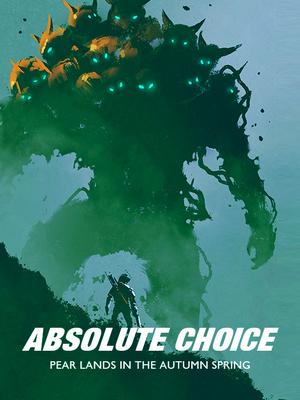
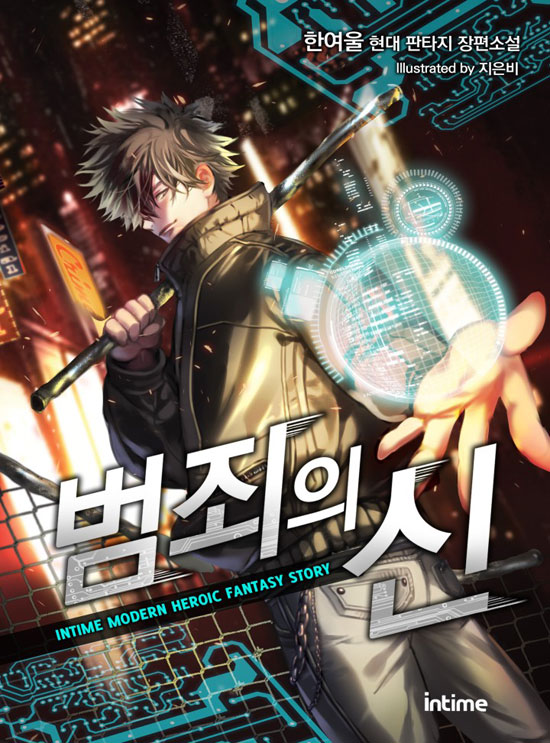
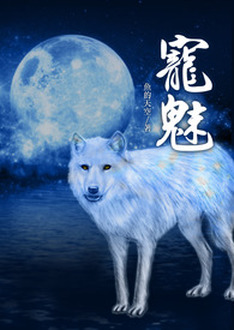
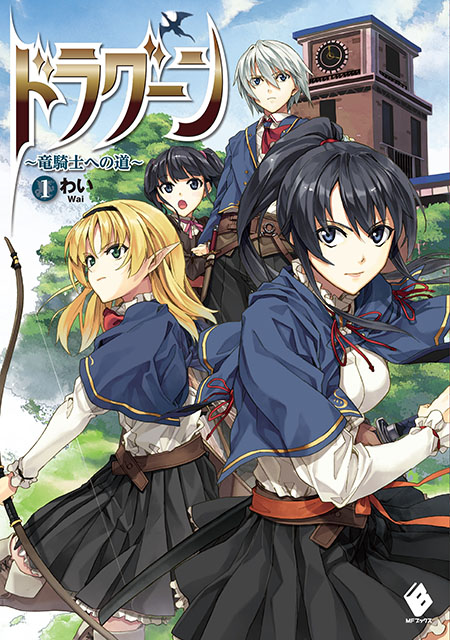

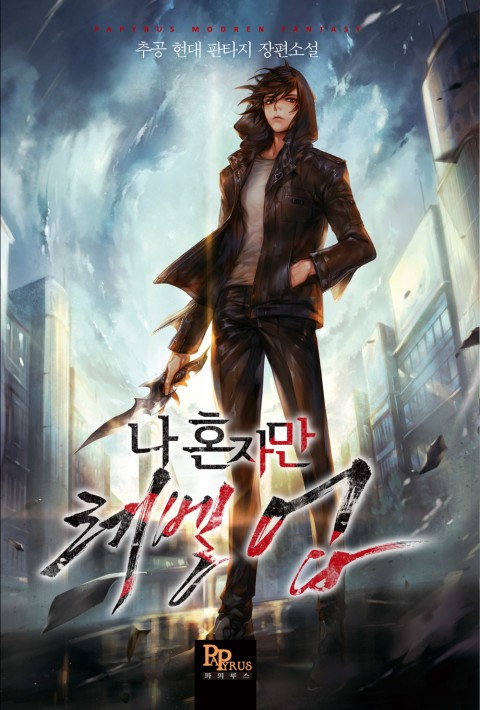
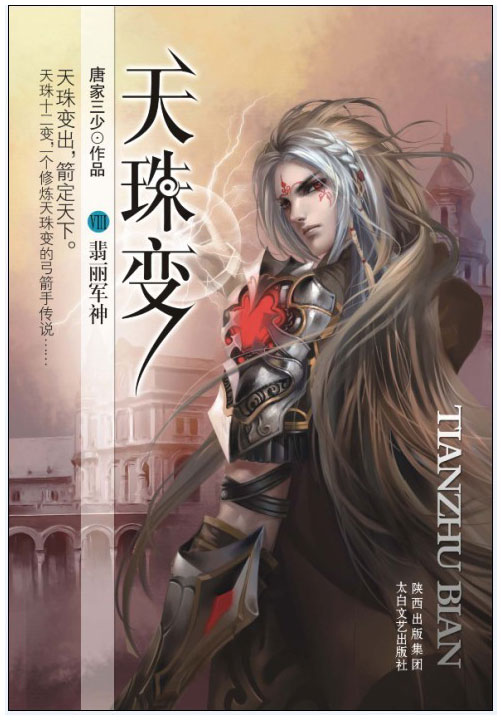

Comment